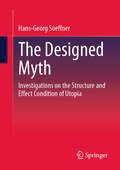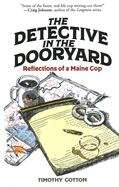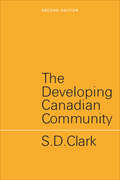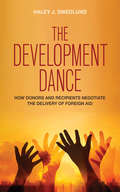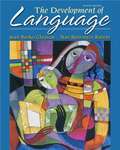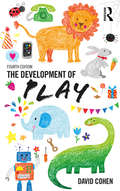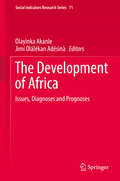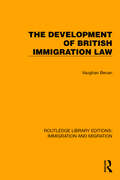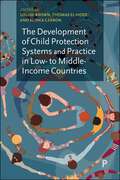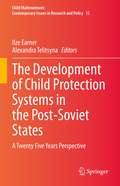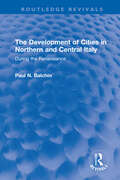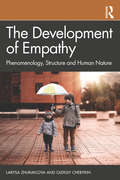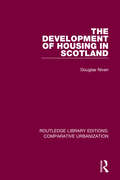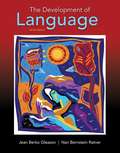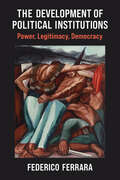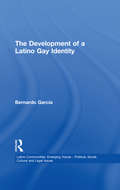- Table View
- List View
The Design of Future Educational Interfaces
by Sharon OviattThe Design of Future Educational Interfaces provides a new multidisciplinary synthesis of educational interface research. It explains how computer interfaces can be redesigned to better support our ability to produce ideas, think, and solve problems successfully in national priority areas such as science and mathematics. Based on first-hand research experience, the author offers a candid analysis of emerging technologies and their impact, highlighting communication interfaces that stimulate thought. The research results will surprise readers and challenge their assumptions about existing technology and its ability to support our performance. In spite of a rapid explosion of interest in educational technologies, there remains a poor understanding of what constitutes an effective educational interface for student cognition and learning. This book provides valuable insights into why recent large-scale evaluations of existing educational technologies have frequently not shown demonstrable improvements in student performance. The research presented here is grounded in cognitive science and experimental psychology, linguistic science and communications, cross-cultural cognition and language, computer science and human interface design, and the learning sciences and educational technology.
The Designed Myth: Investigations on the Structure and Effect Condition of Utopia
by Hans-Georg SoeffnerUtopian thinking and utopian designs ostensibly represent a belief in human progress. The starting point of utopias is almost always a bad present that is to be overcome. But in the 20th and 21st centuries, doubts are growing about a plannable future designed by enlightened reason, about the project of modernity. Utopias are answered by dystopias. This makes it clear: the basic motif of utopian thinking is the fear of an uncontrollable future, a fear that could perhaps be overcome by the principle of hope (Ernst Bloch), an amiable illusion. The Content The "contradiction" of rationality and irrationality in utopian conceptions ● Fiction and reality ● Model and myth ● Symbol and symbolic action ● Enlightenment to autonomy. The target groups ● Humanities scholars, political scientists and social scientists ● Philosophers ● Theologians Theauthor Prof. Dr. Hans-Georg Soeffner is Professor Emeritus of General Sociology at the University of Konstanz, Senior Fellow and Board Member at the Institute for Advanced Study in the Humanities Essen (KWI) and Permanent Visiting Fellow at the Forum internationale Wissenschaft of the Rheinische Friedrich-Wilhelms-Universität Bonn.This book is a translation of an original German edition. The translation was done with the help of artificial intelligence (machine translation by the service DeepL.com). A subsequent human revision was done primarily in terms of content, so that the book will read stylistically differently from a conventional translation.
The Destruction of Black Civilization: Great Issues of a Race From 4500 B. C. To 2000 A. D.
by Chancellor WilliamsThe Destruction of Black Civilization is revelatory and revolutionary because it offers a new approach to the research, teaching, and study of African history by shifting the main focus from the history of Arabs and Europeans in Africa to the Africans themselves, offering instead ""a history of blacks that is a history of blacks. Because only from history can we learn what our strengths were and, especially, in what particular aspect we are weak and vulnerable. Our history can then become at once the foundation and guiding light for united efforts in serious[ly] planning what we should be about now."" It was part of the evolution of the black revolution that took place in the 1970s, as the focus shifted from politics to matters of the mind.
The Detective in the Dooryard: Reflections of a Maine Cop
by Timothy A. CottonTim Cotton has been a police officer for more than thirty years. The writer in him has always been drawn to the stories of the people he has met along the way. Dealing with the standard issue neer-do-wells as a patrol officer, homicide detective, polygraph examiner, and later as the lieutenant in charge of the criminal investigation division certainly provides an interesting backdrop-but more often he writes about the regular folks he encounters, people who need his help, or those who just want to share a joke or even a sad story. The Detective in the Dooryard is composed of stories about the people, places, and things of Maine. There are sad stories, big events, and even the very mundane, all told from the perspective of a seasoned police office and in the wry voice of a lifelong Mainer. Many of the stories will leave you chuckling, some will invariably bring tears to your eyes, but all will leave you with a profound sense of hope and positivity.
The Detective of Modernity: Essays on the Work of David Frisby (Classical and Contemporary Social Theory)
by Georgia Giannakopoulou and Graeme GillochThis book explores the thought of – and is dedicated to – David Frisby, one of the leading sociologists of the late twentieth and early twenty-first centuries. Presenting original examinations of his unique social theory and underlining his interdisciplinary approach to the critical interpretation of modern metropolitan society and culture, it emphasises Frisby’s legacy in highlighting the role of the social researcher as a collector, reader, observer, detective and archivist of the phenomena and ideas that exemplify the modern metropolis as society. With contributions from sociologists, cultural theorists, historians of the city, urban geographers and designers, and architectural historians and theorists, The Detective of Modernity constitutes a wide-ranging engagement with Frisby’s profound legacy in social and cultural theory.
The Developing Canadian Community: Second Edition
by S. D. ClarkProfessor Clark's thesis is that the development of Canadian society can only be understood by examining how changes taking place in the underlying structure of the Canadian community. The first part of the book examines the development of forms of social organization in Canada over the years 1600 to 1920. In the second and third sections the focus shifts to the general forces in Canadian society shaping the character of institutions and forms of social life. The book concludes with four essays devoted to an examination of the relationship of sociology to history. This volume demonstrates the mutually enriching value of a sociological-historical approach, and is very useful for those interested in communities, social change and organization, and the structure of Canadian society.
The Development Dance: How Donors and Recipients Negotiate the Delivery of Foreign Aid
by Haley J. SwedlundIn a book full of directly applicable lessons for policymakers, Haley J. Swedlund explores why foreign aid is delivered in different ways at different times, and why various approaches prove to be politically unsustainable. She finds that no aid-delivery mechanism has yet resolved commitment problems in the donor-recipient relationship; bargaining compromises break down and have to be renegotiated; frustration grows; new ways of delivering aid gain traction over existing practices; and the dance resumes.Swedlund draws on hundreds of interviews with key decision makers representing both donor agencies and recipient governments, policy and archival documents in Ghana, Rwanda, Tanzania, and Uganda, and an original survey of top-level donor officials working across twenty countries in Sub-Saharan Africa. This wealth of data informs Swedlund’s analysis of fads and fashions in the delivery of foreign aid and the interaction between effectiveness and aid delivery. The central message of The Development Dance is that if we want to know whether an aid delivery mechanism is likely to be sustained over the long term, we need to look at whether it induces credible commitments from both donor agencies and recipient governments over the long term.
The Development Of Language (8th Edition)
by Jean Berko Gleason Nan Bernstein RatnerCombining the contributions of experts and highly-respected researchers, the eighth edition of Language Development offers a definitive exploration of language acquisition and development from infancy through adulthood. Taking a multi-disciplinary approach, it examines what we know about language development--addressing communication development in infancy, phonological development, semantic development, morphology and syntax. Broadening the scope of study, it puts language development into larger biological, social and cultural contexts, while investigating individual differences, atypical development, literacy and even language development in adults. This edition includes more on cross-linguistic language acquisition (emphasizing Spanish), new research on the nature and treatment of language disorders in children, and new perspectives on the impact of culture on language development and variation.
The Development Of Large Technical Systems
by Thomas Hughes Renate MayntzThis book is an outcome of the conference on the development of large technical systems held in Berlin in 1986. It focuses on the comparative analysis of the development of large technical systems, particularly electrical power, railroad, air traffic, telephone, and other forms of telecommunication.
The Development Of Play (Concepts In Developmental Psychology Ser.)
by David CohenWhy is play so important in child development? Are children in today’s society suffering from a lack of time for free play, with the emerging dominance of screen play? Can play therapy help to uncover, rescue and rehabilitate children living in abusive environments, or even in war-torn countries? Is play also important for adult development? Play is a learning experience and a crucial component to childhood development as it allows children to emulate the behaviours of those around them and to develop their social skills. In this engaging book, David Cohen examines how children play with objects, language, each other, and their parents to reveal how play enables children to learn how to move, think independently, speak and imagine. Cohen suggests that much of our formative experiences of play informs our future selves, and explores how play can help us to become better parents. This new edition of The Development of Play offers a fascinating review of the importance of play in all our lives. It includes the latest research on the impact of digital technology, brain development, cultural differences in play and toys, and also looks at why parents sometimes choose different toys for girls and boys. The book also provides advice and guidance on how parents can play creatively and imaginatively with their children. It is essential reading for Early Years, health care and education professionals as well as undergraduate students in developmental psychology and education.
The Development Of The Chinese Collection In The Library Of Congress
by Shu Chao HuThis is the first comprehensive and in-depth study of the Chinese collection in the Library of Congress, the largest collection of its kind in the Western world. Started in 1869 with some 950 books received in the first exhange of publications between the United States and China, the collection has grown so steadily that in 1977 it numbered more than 430,000 volumes, including 2,000 rare Chinese items, some of which were printed in A.D. 975. In this primarily historical study, Professor Hu examines the social, cultural, and political forces that led to the development and growth of the collection, the acquisitions policies followed, and the sources of personal and financial support found within and outside the Library of Congress. He also explores the methods by which the library has built up several strong areas in the collection, particularly those of Chinese gazetteers, or local histories; ts’ung-shu, or collections of reprints; and rare works.
The Development of Africa
by Olayinka Akanle Jìmí Olálékan AdésìnàThis volume analyses many of the real development challenges confronting the African continent, presenting fresh and current objective examinations, narratives, interpretations and pathways to the continent’s development. It interrogates and answers established, critical, current and pragmatic problems confronting Africa today, and provides workable pathways out of the development problems, so that scholarship, policy and practice will be positively impacted. This volume adds great depth and extended breadth to the knowledge base on development of Africa. It provides excellent resources for academics, scholars, student, policy makers and all those interested in issues affecting Africa’s development.
The Development of Aryan Invasion Theory in India: A Critique of Nineteenth-Century Social Constructionism
by Subrata Chattopadhyay BanerjeeThis book delves deep into the Social Construction of Theory, comparative epistemology and intellectual history to stress the interrelationship between diverse cultures during the colonial period and bring forth convincing evidence of how the 19th century was shaped. It approaches an interesting relation between the linguistic studies of 19th century’s scientific world and subsequent widespread acceptance of the empirically weak theory of the Aryan invasion. To show entangled history in a globalized world, the book draws on the Aryan Invasion Theory to highlight how different socio-religious parties commonly shape a new theory. It also explores how research is affected by the so-called social construction of theory and comparative epistemology, and deals with scholarly advancement and its relation with contemporary socio-political demands. The most significant conclusion of the book is that academic studies are prone to comparative epistemology, even under the strict scrutiny of the so-called scientific methods.
The Development of British Immigration Law (Routledge Library Editions: Immigration and Migration #8)
by Vaughan BevanThe Development of British Immigration Law (1986) examines the policies and laws of immigration law in the UK. It demonstrates that many modern issues have historical precedents. The justifications for immigration control are examined and linked to a discussion of nationality law and race relations. It is argued that the laws and practices of immigration are unnecessarily rigid and racist, both in design and in effect; that the record of the UK is a sorry chapter in the field of human rights but one which is consistent with international state practice; that immigration is an ideal model to illustrate the UK’s general treatment of civil liberties. Particular aspects of the subject are examined in depth to illustrate the attitudes of government, the courts and civil servants.
The Development of Child Protection Systems and Practice in Low- to Middle-Income Countries
by Louise Brown, Thomas El-Hoss and Alinka GearonChild protection systems across the globe are developing at pace, each reflecting their unique economic, social, and cultural contexts. This book provides an overview of 11 child protection systems from low- and middle-income countries and discusses the formal and informal responses countries are making to the shared problem of child abuse and maltreatment. Within each chapter, vignettes give readers a window into how each country’s child protection system operates in practice. This is essential reading for academics, social work professionals and anybody working within child and family welfare.
The Development of Child Protection Systems in the Post-Soviet States: A Twenty Five Years Perspective (Child Maltreatment #12)
by Ilze Earner Alexandra TelitsynaThis volume provides an understanding of how systems of child protection evolve in disparate cultural, social and economic contexts. Using the former Soviet Union as a starting point, it examines how 13 countries have developed, defined and evolved their system of protecting children and providing services to families over the last 25 years since independence. The volume runs an uniform approach in each country and then traces the development of unique systems, contributing to the international understanding of child protection and welfare. This volume is a fascinating study for social scientists, social workers, policy makers with particular interest to those focusing on children, youth, and family issues alike as each chapter offers a clear and compelling view of the central changes, competing claims and guiding assumptions that have formed each countries individual approach to child protection and family services.
The Development of Cities in Northern and Central Italy: During the Renaissance (Routledge Revivals)
by Paul N. BalchinOriginally published in 2019, this book provides a comprehensive account of a formative historical period, uniquely describing Renaissance architecture as the physical manifestation of political and economic change. The book illustrates how shifts in architectural style and design were paralleled with Northern and Central Italy’s external and internal conflicts, the evolution of urban and regional government, and economic and demographic growth. Covering the full extent of the Renaissance period, Balchin charts the era’s medieval roots and its transformation into Mannerist and Baroque tendencies. He demonstrates how developments in architecture and planning were inextricably linked to political and economic power, and how these relationships shifted from city to city over time.
The Development of Eco Cities in China
by Weiping Sun Juke Liu Wenzhen HuThis book presents an in-depth study on and summary of the current practice and theories for the construction of eco-cities in China in the context of the country's rapid urbanization. It argues that by 2020, 60% of China's population will live in cities. And the evolution from "green cities" to "eco- cities", and subsequently to "smart cities" is crucial to China's sustainable development. The book presents a feasible and objective quantitative evaluation system for the sustainable and healthy development of eco-cities. It summarizes the Chinese experience in building eco- cities as the coordinated development of economy, society, resources and environment, with the goal being "to make cities inclusive, safe, resilient and sustainable". This is essential to achieving a number of the United Nations' Sustainable Development Goals. In addition, the book defines the current stage of development Chinese cities have reached in terms of ecological construction, and offers guidance on selecting suitable urban ecological construction modes and improvement approaches. It provides a valuable reference source and guidebook for research on and the practice of eco-city construction. Accordingly, it will help other countries around the world, especially the developing countries, to benefit from China's successful experience.
The Development of Empathy: Phenomenology, Structure, and Human Nature
by Larysa Zhuravlova Oleksiy ChebykinThis thought-provoking volume offers psychological perspectives on the formation of empathy and how this determines both antisocial and prosocial behaviors in individuals. It offers a theoretically grounded and empirically proven integrated approach, helping readers gain a holistic understanding of human nature and the need for empathic interaction between people. Larysa Zhuravlova and Oleksiy Chebykin study the evolution of empathy, peculiarities from birth to old age, and its role in the moral and spiritual development of a person. Key sections explore theoretical and methodological principles of empathy research, the genesis and development of human empathy, the phylogenetic preconditions for empathy, the psychological features of the ontogenesis of empathy, the key factors in personality development, and the experimental study of empathy. Considering a vision of a society based on empathic relationships, which could deter discrimination, help resolve environmental issues, harmonize interpersonal relationships, and resolve conflict, this new text is for advanced students of developmental and educational psychology. It will have broad appeal across academic and applied discipines in social and developmental psychology, education, the helping professions, and human development.
The Development of Housing in Scotland
by Douglas NivenOriginally published in 1979, this volume begins with an historical summary of housing development in Scotland. Scottish urban housing has always followed a unique and distinctive pattern from the rest of the UK, resembling more closely the flatted developments of Continental Europe. The book compares the policies and programmes of development in EU countries and Scandinavia. The problems caused by over-emphasis on public-sector housing in Scotland since the First World War are discussed. A break-down of the work carried out by housing societies and associations reveals little national or local support in Scotland, unlike in European or Scandinavian countries where such association have formed a vital element in their housing policies.
The Development of Language
by Jean Gleason Nan RatnerFeaturing a multi-disciplinary approach–and chapters written by outstanding scholars known for their expertise in the areas they discuss–The Development of Language focuses on language acquisition throughout the lifespan, with new coverage of linguistic achievements in the first year of life and through the middle school years. It examines what we know about language development using biological, social, and cultural contexts, while also investigating individual differences, atypical development, literacy, and language development in adults. Each chapter is written by world-renowned scholars and cutting-edge researchers, and each chapter provides a helpful summary, list of key words, a comprehensive text glossary explaining each term, and extensive links to video resources that help bring the concepts to clarity, through examples of child communication behaviors, insights into how research into child language is conducted, and first person interviews with influential researchers in the field. <P><P>The new edition emphasizes language development in children who are learning languages other than English or are bilingual and includes new information about children with risk factors for language delay or disorder. Within each topical area, such as speech production, vocabulary, syntax, pragmatics, and literacy, the authors integrate discussion of potential problems or differences in how children learn the various aspects of language. Cultural influences that lead to group and individual variation in children’s language environments and profiles of language development are addressed throughout. The Enhanced Pearson eText features embedded videos.
The Development of Political Institutions: Power, Legitimacy, Democracy (Emerging Democracies)
by Federico FerraraWhile the literature on “new institutionalism” explains the stability of institutional arrangements within countries and the divergence of paths of institutional development between countries, Federico Ferrara takes a “historical institutionalist” approach to theorize dynamic processes of institutional reproduction, institutional decay, and institutional change in explaining the development of political institutions. Ferrara synthesizes “power-based” or “power-distributional” explanations and “ideas-based” “legitimation explanations.” He specifies the psychological “microfoundations” of processes of institutional development, drawing heavily from the findings of experimental psychology to ensure that the explanation is grounded in clear and realistic assumptions regarding human motivation, cognition, and behavior. Aside from being of interest to scholars and graduate students in political science and other social-scientific disciplines whose research concentrates on the genesis of political institutions, their evolution over time, and their impact on the stability of political order and the quality of governance, the book will be required reading in graduate courses and seminars in comparative politics where the study of institutions and their development ranks among the subfield’s most important subjects.
The Development of Social Cognition and Communication
by Catherine S. Tamis-LeMonda Bruce D. HomerFor young children, two of the most important tasks they face are learning how to communicate and learning how to think about themselves and the social world around them. The premise of this book is that these two tasks are inherently linked. The communicative routines and language that children learn enable new modes of cognition, which in turn allow for more complex social interactions. The model of early child development that emerges is one in which equal importance is given to the socio-cultural context in which children are developing, and to the role played by children in actively constructing their own knowledge. The book is organized into four thematic sections, each introduced by an integrative overview. The first section, "Language and Cognition," examines the function of language in young children's lives. The second section, "Intentionality and Communication," explores young children's understanding of intentions and their verbal and non-verbal communication. The third section, "Theory of Mind and Pedagogy," examines the ways in which developments in cognitive and communicative skills transform children's participation in the process of teaching and learning. The final section, "Narrative and Autobiographical Memory," looks at the effects of narrative on young children's understanding of themselves and their world. This book will be of great interest to anyone concerned with young children's learning and development.
The Development of Women's Soccer: Legacies, Participation, and Popularity in Germany (Critical Research in Football)
by Henk Erik MeierWhile women’s soccer has risen in popularity around the world, research reveals persistent gender discrimination and marginalization of girls and women in the sport. Applying policy feedback theory and econometric analysis, this volume explores the lasting impact of different regimes of gender discrimination on the development of women’s soccer in Germany. Taking reunified Germany as an ideal case for examining the long-term impact of policy legacies, the book explores how the different systems of gender discrimination in divided Germany have influenced the participation and popularity of women’s soccer. It analyzes the development of grass- roots girls’ and women’s soccer in different regions, and examines the development of the semi- professional Frauen-Bundesliga and the popularity of the national women’s soccer team, which serves as the most important outlet for women’s soccer in Germany. Drawing on these analyses, the book assesses the impact of policy legacies, identifies key challenges for the future of women’s soccer and offers some practical directions for future development. The evidence presented in this book suggests that the sport has experienced substantial long-term growth but is now in a period of stagnation. The book argues that discrimination against girls’ and women’s soccer has long- lasting effects and that the policy priorities adopted by soccer’s governing bodies, local clubs, as well as television operators, have huge significance for the longer-term development of the game. This is fascinating reading for students and researchers of sport sociology, women’s sport, sports economics, sport development, sport management, and gender studies as well as decision makers within the soccer sector. It is also a valuable resource for scholars, policymakers, sport officials, and women’s soccer activists.
The Development of a Latino Gay Identity (Latino Communities: Emerging Voices - Political, Social, Cultural and Legal Issues)
by Bernardo C. GarciaFirst published in 1999. Routledge is an imprint of Taylor & Francis, an informa company.

